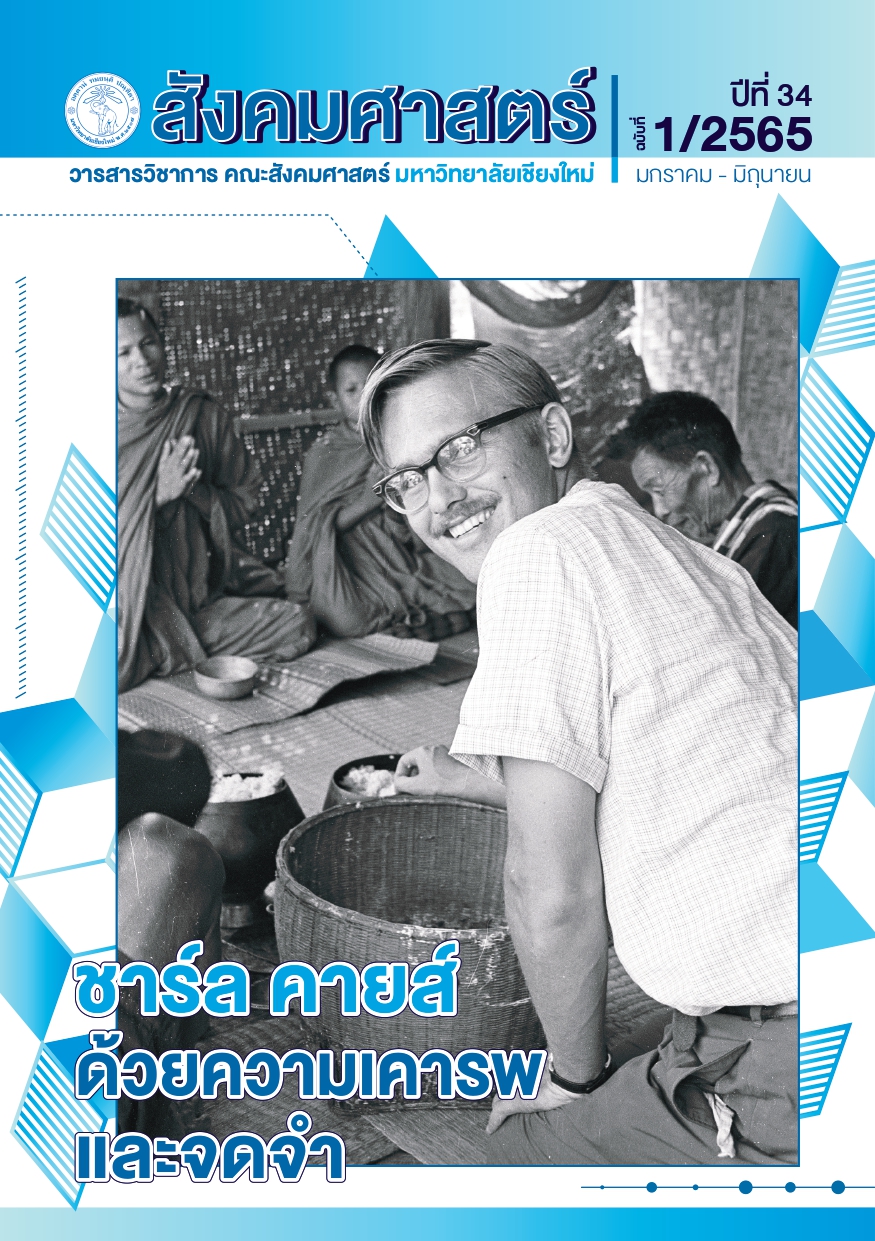Complex Complex City Ego Concealing City
Main Article Content
Abstract
“Unconscious life” is a key concept to understand the life of modern, or even postmodern, cities which are products of inexorable global capitalism. Up to the present, almost of modern cities have been regarded as an outcome of ecological, politico-economic, cultural and technological dynamics of the modern world. This trend of explanations sounds academically reasonable, but it should be reconsidered in some extent from another standpoint. this article insists that, until now, one big story, an unconscious life of the city has been overlooked in the field of urban studies. Besides ecological equilibrium, class conflict, globalization and digitalization, we should also take an unconscious life of the city, which is one of the most important element of the modern urban content, into consideration.
Article Details

This work is licensed under a Creative Commons Attribution-NonCommercial-NoDerivatives 4.0 International License.
All written articles published on Journal of Social Sciences is its author’s opinion which is not belonged to Faculty of Social Sciences, Chiang Mai University or is not in a responsibility of the journal’s editorial committee’s members.
References
ดวงจันทร์ อาภาวัชรุตม์ เจริญเมือง. 2541. เมืองและการผังเมืองในประเทศไทย กรณีเมืองเชียงใหม่. เชียงใหม่: ศูนย์ศึกษาปัญหาเมืองเชียงใหม่และกลุ่มมังราย.
Albrow, Martin. 1997. “Travelling Beyond Local Cultures: Socioscapes in a Global City”. In John Eade (ed.), Living the Global City: Globalization as a Global Process, pp. 37-55. London: Routledge.
Barker, Chris. 2000. Cultural Studies: Theory and Practice. London: Sage.
Castells, Manuel. 1989. The Informational City: Information Technology, Economic Restructuring and the Urban Regional Process. Oxford: Blackwell.
Castells, Manuel. 1996. The Rise of the Network Society. Oxford: Blackwell.
Cousins, Albert N. and Hans Nagpaul. 1979. Urban Life: The Sociology of Cities and Urban Society. New York: John Wiley and Sons.
Eck, Diana L. 1987. The City as a Sacred Center. In Bardwell Smith and Holly Baker Reynolds (ed.), The City as a Sacred Center, pp. 1-11. Leiden: E. J. Brill.
Flanagal, William. G. 1990. Urban Sociology: Images and Structure. Boston: Allyn and Bacon.
Flanagal, William. G. 1993. Contemporary Urban Sociology. Cambridge: Cambridge University Press.
Graham, Stephen and Simon Marvin. 1996. Telecommunications and the City: Electronic Spaces, Urban Places. London: Routledge.
Harvey, David. 1990. The Condition of Postmodernity. Oxford: Blackwell.
Harvey, David. 2013. Rebel Cities: From the Right to the City to the Urban Revolution. London: Verso.
Lefebvre, Henri. 1996. Writing on City. Malden: Blackwell.
Lefebvre, Henri. 2004. Rhythmanalysis: Space, Time and Everyday Life. London: continuum.
Laguerre, Michel S. 2005. The Digital City: The American Metropolis and Information Technology. London: Palgrave Macmillan.
Legates, Richard T. and Ferderic Stout. 1996. (ed.), The City Reader. London: Routledge.
Miles, Steven and Malcolm Miles. 2004. Consuming Cities. New York: Palgrave Macmillan.
Mumford, Lewis. 1996. “What is a City” In Richard T. Legates and Frederic Stout (ed.), The City Reader. London: Routledge.
Pile, Steve. 1996. The Body and the City: Psychoanalysis, Space and Subjectivity. London: Routledge.
Sassen, Saskia. 2017. The Global City: New York, London, Tokyo. Princeton: Princeton University Press.
Sassen, Saskia. 2017. A Sociology of Globalization. New York: Norton.
Schirato, Tony and Jen Webb. 2003. Understanding Globalization. London: Sage.
Short, John Rennie and Yeong-Hyun Kim. 1999. Globalization and the City. New York: Longman.
Smith, Michael Peter. 2001. Transnational Urbanism: Locating Globalization. Oxford: Blackwell.
Soja, Edward W. 2002. Postmetropolis: Critical Studies of Cities and Regions. Oxford: Blackwell
Sudjic, Deyan. 2017. The language of Cities. London: Penguin Books.
Wirth, Louis. 1996. “Urbanism as a Way of Life” In Richard T. Legates and Frederic Stout (ed.), The City Reader. London: Routledge.


